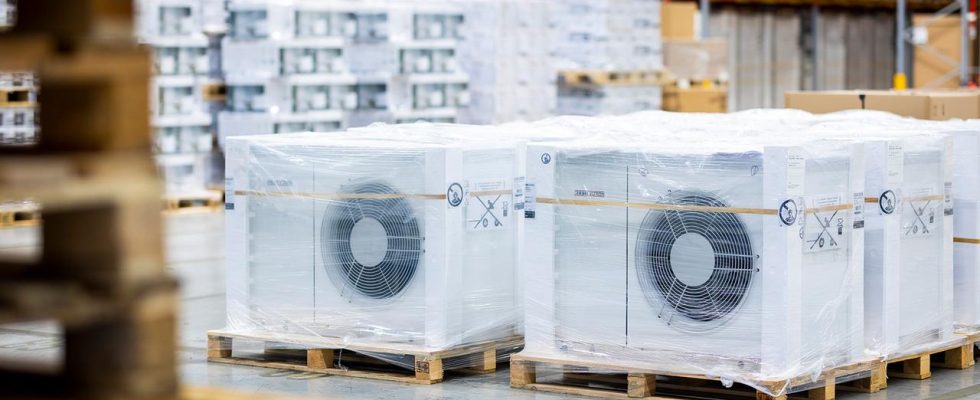report
Horrible gas prices due to the war in Ukraine caused heat pumps to boom. With the wrangling over the heating law, demand collapsed – with consequences for manufacturers like Stiebel Eltron.
Tim Radl used to be a professional soldier, but today he assembles heat pumps in Holzminden, Lower Saxony. Two years ago he started working for the manufacturer Stiebel Eltron, right in the middle of the boom. “It was really tough here,” remembers the 32-year-old. Hardly any time for toilet breaks, special shifts on Saturdays – everyone wanted heat pumps from Holzminden, and Radl was suddenly part of this success story.
His colleague Birgit Nolde also remembers the time when Germany was in danger of running out of gas and the heat pump suddenly became a beacon of hope. “We worked six days a week, constantly under stress,” says Nolde. “It couldn’t happen fast enough.”
Today, two years later, the situation is completely different. Interest in heat pumps has dwindled. Radl and Nolde only work three days a week and no longer on Saturdays. In Holzminden, around 2,000 employees are on short-time work, and the factory premises in the Weserbergland have become quiet.
Confused customers and lots of questions
“There is always a fate behind it,” says Birgit Nolde. “We have colleagues with children, which isn’t so nice right now.” The temporary workers are gone, the halls seem empty. “This back and forth in Germany is not productive,” says Tim Radl, sticking a seal into an almost finished heat pump.
By back and forth, the fitter means the discussion about the heating law that has been going on in Germany for months. First, the traffic light government argued about an obligation to replace heating systems and a ban on gas heating. After massive protests and internal disputes, the coalition finally defused the plans.
The discussion then revolved around funding for homeowners for a similar length of time. The result: unsettled customers and many questions. How much money does it cost to switch to a heat pump? What actually applies now? Does the funding last in the long term?
When gas prices fell and the fear of a shortage and cold apartments faded, the disaster was perfect for the heat pump manufacturers: property owners switched to traditional oil and gas heating and left the heat pump aside. You can still feel this trend at Stiebel Eltron in Holzminden today. The company expects to sell about 35,000 heat pumps this year, 15,000 fewer than last year.
“Unnecessary turbulence”
Kai Schiefelbein is the boss of Stiebel Eltron; he once started here as a heat pump developer. The tall, slim man with glasses walks through the factory halls and shakes hands with dozens of his employees. Schiefelbein knows which parts are installed in his products; he knows plugs, cables and soldering points.
The company boss is proud that his company produces in Germany – despite high personnel costs. He also blames the federal government for the fact that his employees are on short-time work. “Politics have caused these people pain,” says Schiefelbein. The federal government “communicated poorly” on the Building Energy Act and the funding for homeowners got into “pretty unnecessary turbulence”.
Schiefelbein considers the current situation to be paradoxical. The subsidies for the purchase of a heat pump are higher than ever, there are also low-interest KfW loans, and the delivery times are short – and yet the customer doesn’t buy it as hoped. Schiefelbein suspects that the reservations are of a “psychological nature.” “The negative attitude must first disappear again.”
Medium-term prospects good
But when is it? The worst month was February, explains the Stiebel Eltron boss. He expects sales to pick up again “late summer, fall.” Also because KfW then begins paying out the subsidies.
In the long term, Schiefelbein is certain that the heat pump market will gain momentum again – when the stricter requirements of the Building Energy Act gradually take effect and oil and gas heating systems disappear from the market. This is also why the managing director considers the current short-time work to be a useful instrument, especially in view of the shortage of skilled workers.
Schiefelbein knows: He has to keep the people, he will need them again soon. “The medium-term prospects are good,” says the entrepreneur and smiles. “So that you can then benefit, you have to survive the short-term situation.”

